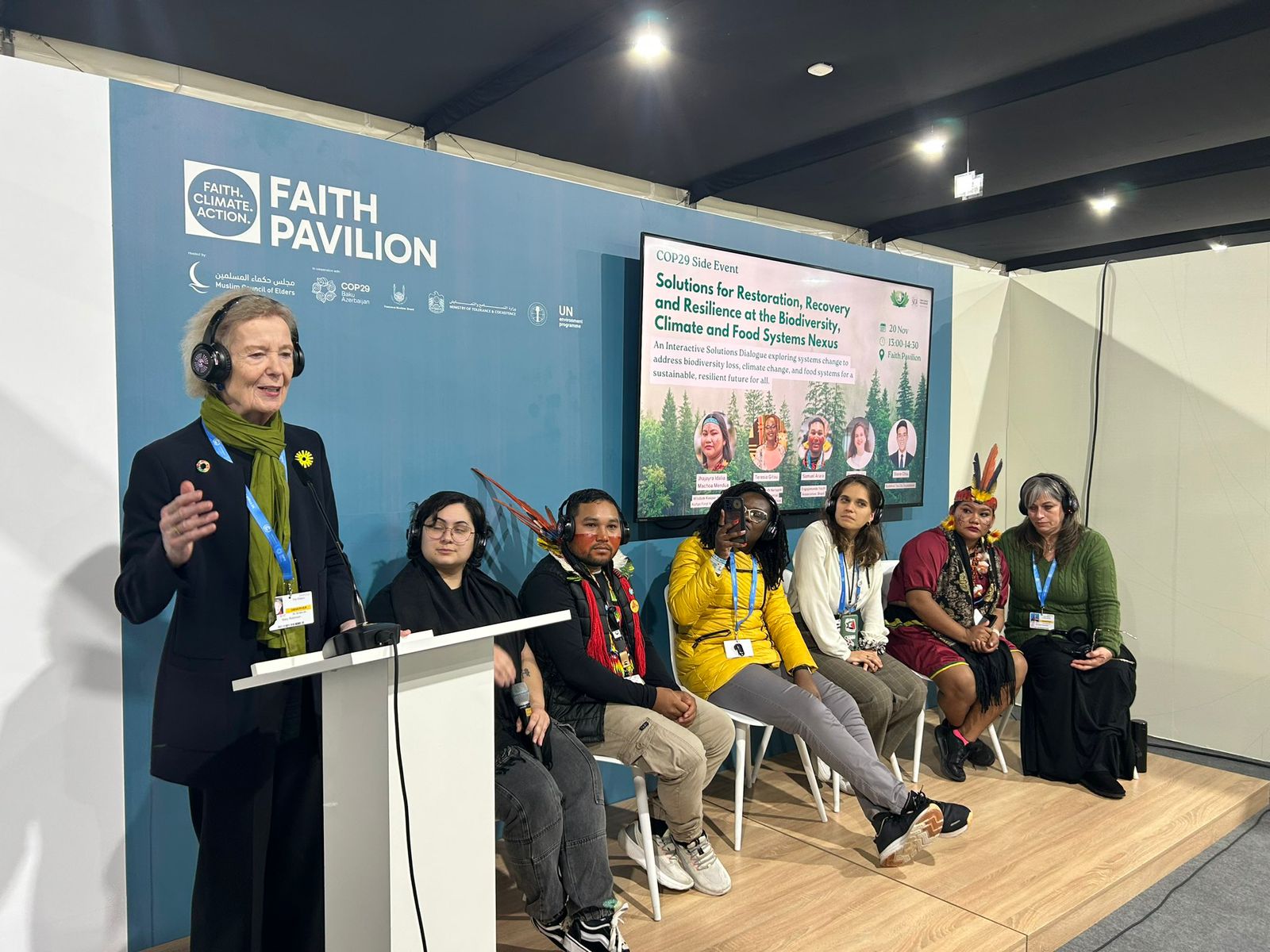His Excellency Dr. Ahmad Belhoul Al Falasi: The United Arab Emirates is proud of its pioneering role in supporting and promoting moral education
Participants praise the Ethics Education Fellowship Program and call for continued support and investment in educational and ethical values and learning to live together
The capital of the United Arab Emirates, Abu Dhabi has witnessed the conclusion of the ‘Convening of Champions’ as part of the Ethics Education Fellowship Program which was composed of a two-day technical discussion, sharing and development of collaborative plans, followed by a one-day high-level segment. The program was co-hosted by the Muslim Council of Elders, the Higher Committee of Human Fraternity, UNESCO, Arigatou International, KAICIID International Dialogue Centre and the Guerrand-Hermès Foundation for Peace.
His Excellency Dr. Ahmad Belhoul Al Falasi, Minister of Education of the United Arab Emirates said in a recorded speech during the program’s closing ceremony, emphasized the importance of adopting a comprehensive approach in the educational process that encourages youth to embrace common human values, pointing out the role of moral education in shaping the character of the new generations to be able to lead positive change in their communities and benefit humanity as a whole. His Excellency added that the United Arab Emirates is proud of its pioneering role in supporting and promoting moral education by embedding a culture of diversity within the educational system, incorporating values of positive citizenship, ethical sustainability, acceptance of others, and respect for cultural diversity into all curricula in the country, and launching initiatives and programs aimed at equipping students with the knowledge and personal skills that enhance their belonging to their national communities and develop their humanitarian and ethical sense.
Hon. Dr. Justin Davis Valentin, Seychelles Minister of Education also remarked, “We took the Fellowship Program very seriously and it fits very well in our strategy of promoting value-based education. We are already experiencing great results as a results of implementing the ethics education within our school curricula. I dedicate the 2024 academic year as the year for building a more united and peaceful learning environment.”
The Secretary General of the Muslim Council of Elders, H.E. Judge Abdelsalam along H.E. Dr. Khalid Al Ghaith, Secretary General of the Higher Committee of Human Fraternity added, “Congratulations to all the country delegations for the important commitments and pledges that we have heard over the past three days that will be fundamental to advance the transformation of education systems. We have seen in these days concrete evidence of how ethics education contributes to foster the principles of human fraternity and interconnectedness, peaceful coexistence and solidarity, nurturing positive relationships and empowering learners to transform societies.”
Likewise, Ms. Sophia Ashipala, Head of Education Division at the African Union remarked, “The African Union has declared 2024 as the year of Education, which is a commendable step towards building a more resilient and inclusive education system in Africa. As Africa strives to revitalize its education systems, we have placed particular attention to marginalized groups such as; girls, children in rural areas and those living with disabilities and on the move. It is important for us to revise the education curriculum and to incorporate ethical, cultural and environmental consideration which will empower learners to navigate the complexities of an inter-connected world.”
Reverend Keishi Miyamoto, President of Arigatou International remarked, ”We firmly believe that ethics education can enhance children's innate ability to make positive contributions to the wellbeing of their peers, families and communities. This would in turn help the entire human family live and flourish in a better world filled with love, compassion and dignity. An essential step on the road to peace is to ensure that every child has the capacity to learn ethical values that promote global peace and coexistence. I wish to express my profound gratitude to the governments of the participating nations in the Ethics Education Fellowship Program for their efforts in supporting and prioritizing ethics education in the lives of children and their communities.”
Bishop Paolo Martinelli, Apostolic Vicar for Southern Arabia noted, “Investing in education means investing in the future. Ethical and spiritual values can help young people thrive in their everyday lives by becoming model citizens capable of facing the future with courage and serenity. The Document on Human Fraternity, which was co-signed by His Eminence Dr. Ahmed Al-Tayeb, the Grand Imam of Al-Azhar and His Holiness Pope Francis marked a new chapter in the relationship between religions and is a great tool for interfaith education, by placing an emphasis on diversity, where followers of religions learn to respect each other for the sake of humanity.”
Participants in the Fellowship Program vowed to increase investment and focus on ethics education in both formal and non-formal education systems, to support the social, emotional, and spiritual well-being of children contribute to building more inclusive, respectful, and resilient societies. They also pledged to integrate and Mainstream Ethics Education to promote intercultural and interreligious learning in the existing education curriculum, policies, and programming across the education system and school experience and to strengthen the capacity of formal education institutions and educators on ethics education through training for teachers, both pre-service and/or in-service training, on ethics education transformative pedagogies.
The Ethics Education Fellowship Program was launched with the engagement of the Ministries of Education of Bangladesh, Indonesia, Kenya, Mauritius, Nepal and Seychelles as a unique collaborative effort to promote Ethics Education to contribute to global citizenship and building. Through the Ethics Education Fellowship Program 324 teachers were trained in its first phase, successfully reaching 8,234 children across all six participating countries, contributing to the strengthening of social cohesion.
Over the Abu Dhabi meeting’s three-day duration, the program provided a platform to discuss the critical need to prioritize and invest in Ethics Education, share the results of the implementation in the participating six countries as well as the lessons learned, and provide critical recommendations to different stakeholders.

